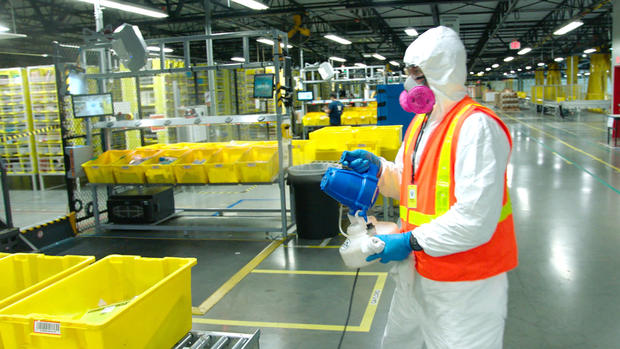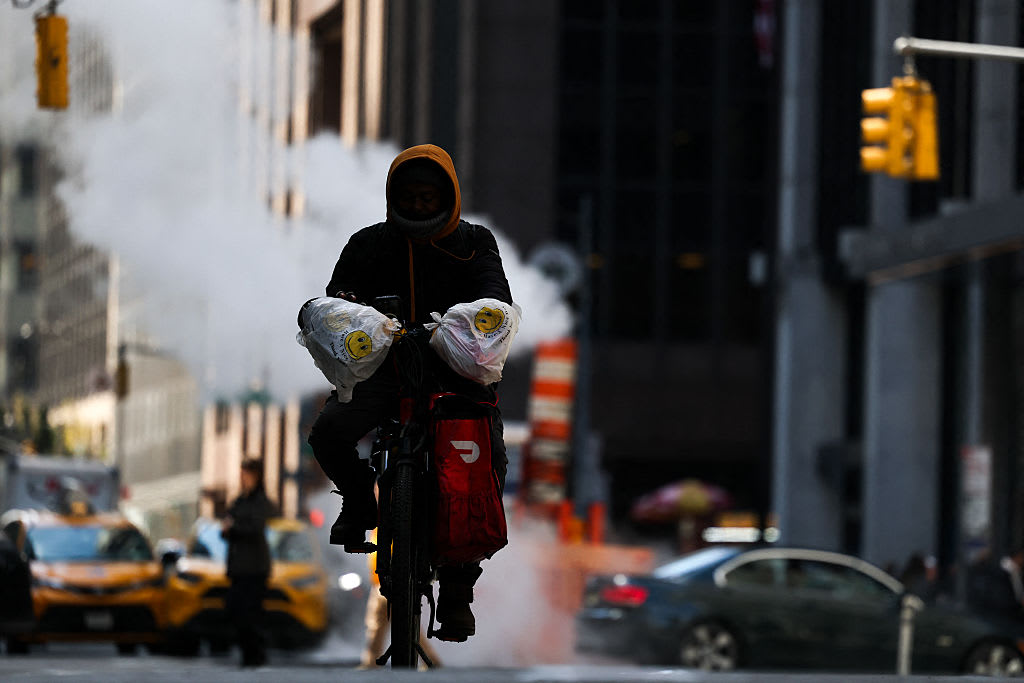Amazon worker: At least 600 Amazon employees stricken by coronavirus
Amazon, Inc. is the second largest private employer in the United States and recently announced it hired an additional 175,000 people to assist with increased customer demand during the coronavirus pandemic.
The company has more than 150 million paid Prime subscribers worldwide, many of whom have come to rely on the delivery service and its essential workers amidst stay-at-home orders around the globe.
This week on 60 Minutes, correspondent Lesley Stahl reports on how Amazon is protecting its workforce during the coronavirus pandemic.
"I think we've been early on the curve to this than most employers, particularly major employers in the U.S.," Amazon's head of operations, Dave Clark, told Stahl.
As part of the company's last earnings report, Amazon CEO Jeff Bezos pledged at least $4 billion for COVID-related expenses. The company says it has already invested more than $800 million on safety measures.
The safeguards include experimenting with self-administered COVID-19 testing capabilities, mandating temperature checks, and distributing portable handwashing stations.
The corporation's focus on worker safety comes as some Amazon employees have staged protests, walk-outs, and sick-outs. Their demands include better sanitation of facilities, hazard pay and more generous sick leave.
Amazon says any employee who tests positive for COVID-19 or is presumed positive is eligible to receive up to two weeks of paid time off.
Until May 1, the company had offered unlimited, unpaid time off for its employees who were concerned about their safety during the pandemic. Amazon also increased its current minimum wage from $15 to $17 through May 16.
Jana Jumpp, a 59-year-old Amazon employee who works at a warehouse in Indiana, told 60 Minutes she took advantage of the stay-at-home benefit because she feared for her health.
"I was a little uncomfortable…the cases were starting in Washington and it didn't seem like anybody had a plan, even Amazon," Jumpp told 60 Minutes. "So my only option at that point was to take a leave of absence."
Jumpp says she began working for Amazon more than four years ago. She has not gone to work in at least two months, taking advantage of the extended unpaid leave policy.
While at home, on her own initiative, Jumpp is tracking the number of Amazon employees who have tested positive for COVID-19 at locations throughout the nation. She gathers her data by connecting with coworkers across the country and collecting the automated text messages and robocalls Amazon sends its employees when someone tests positive at one of its facilities.
"I can tell you right now, and the number is higher than this, but we have at least 600 [cases]," Jumpp said to Stahl. Jumpp says six Amazon employees have died from COVID-19.
Amazon would not confirm Jumpp's number and says it is not the most important way to quantify the problem. "The actual…total number of cases isn't particularly useful because it's relative to the size of the building and then the overall community infection rate," Clark told 60 Minutes.
Amazon says its automated notification system informs all employees when there is a new confirmed case of COVID-19 at the facility they work at, some of which are the size of multiple football fields. The company does not specify the department or shift the positive employee worked on in these messages. Amazon says it does direct employees who work in proximity of those who have tested positive to enter quarantine, with pay.
Amazon employees who do not meet the stay-at-home criteria now must decide if and when they return to work.
"If there's no reason not to be at work and you choose to stay home...you'd have to use your unpaid time off or [use] your other paid time off options in order to remain at home," said Amazon's Dave Clark. "And if you run out of all those options you would need to come back to work or yes, it would result in separation from [the] company."
The video above was produced by Keith Zubrow and Sarah Shafer Prediger. It was edited by Sarah Shafer Prediger.





